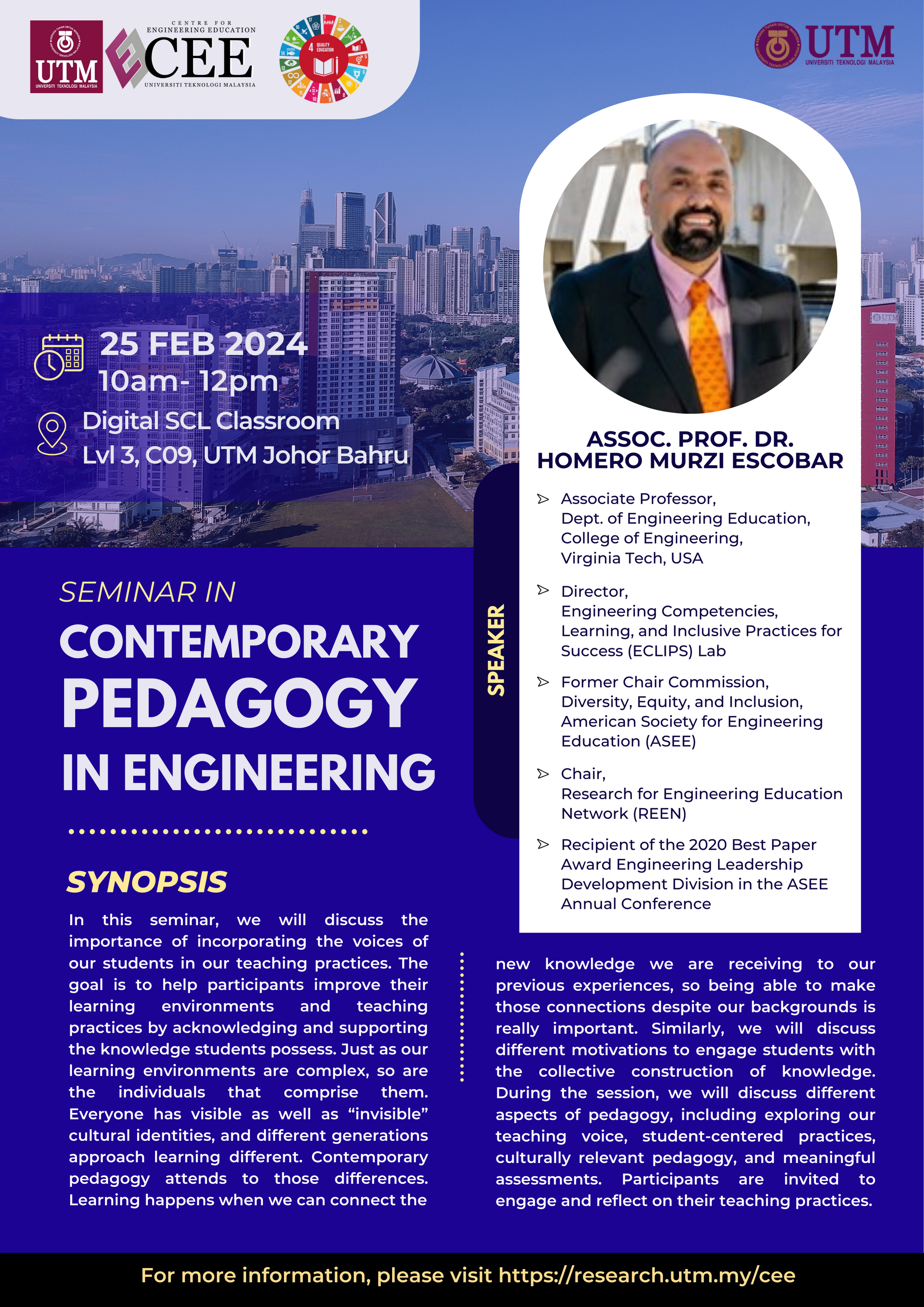SEMINAR IN CONTEMPORARY PEDAGOGY IN ENGINEERING
Date: 25th February 2024
Time: 10.00 am – 12.00 pm
Venue: Digital SCL Classroom, Level 3, C09, Universiti Teknologi Malaysia,
UTM Johor Bahru, Johor
In this seminar, we will discuss the importance of incorporating the voices of our students in our teaching practices. The goal is to help participants improve their learning environments and teaching practices by acknowledging and supporting the knowledge students possess. Just as our learning environments are complex, so are the individuals that comprise them. Everyone has visible as well as “invisible” cultural identities, and different generations approach learning different. Contemporary pedagogy attends to those differences. Learning happens when we can connect the new knowledge we are receiving to our previous experiences, so being able to make those connections despite our backgrounds is really important. Similarly, we will discuss different motivations to engage students with the collective construction of knowledge. During the session, we will discuss different aspects of pedagogy, including exploring our teaching voice, student-centered practices, culturally relevant pedagogy, and meaningful assessments. Participants are invited to engage and reflect on their teaching practices.
Expected outcomes
- Develop a critically engaged, self-reflective teaching praxis that goes beyond content delivery.
- Identify the tenets of contemporary.
- Understand how people learn, and how to connect it to our teaching practices
- Develop engaging course materials through collaborative, dialogic interaction with others.
Who Should Join?
- Academics and graduate students who teach engineering courses.
Presenter background
Dr. Homero Murzi is an Associate Professor in the Department of Engineering Education at Virginia Tech with honorary appointments at the University of Queensland (Australia) and University of Los Andes (Venezuela). Homero is the leader of the Engineering Competencies, Learning, and Inclusive Practices for Success (ECLIPS) Lab, a research community focused on studying contemporary and inclusive pedagogical practices, emotions in engineering, competency development, and understanding the experiences of Latinx and Native Americans in engineering from an asset-based perspective. Before coming to the United States, Homero had a tenured career for 14 years in Venezuela, where he developed several faculty development programs in the country. Homero serves as the American Society for Engineering Education (ASEE) Past Chair for the Commission on Diversity, Equity, and Inclusion (CDEI) and the Chair for the Research in Engineering Education Network (REEN). He holds degrees in Industrial Engineering (BS, MSc) from the National Experimental University of Táchira, Master of Business Administration (MBA) from Temple University, and Engineering Education (PhD) from Virginia Tech.


